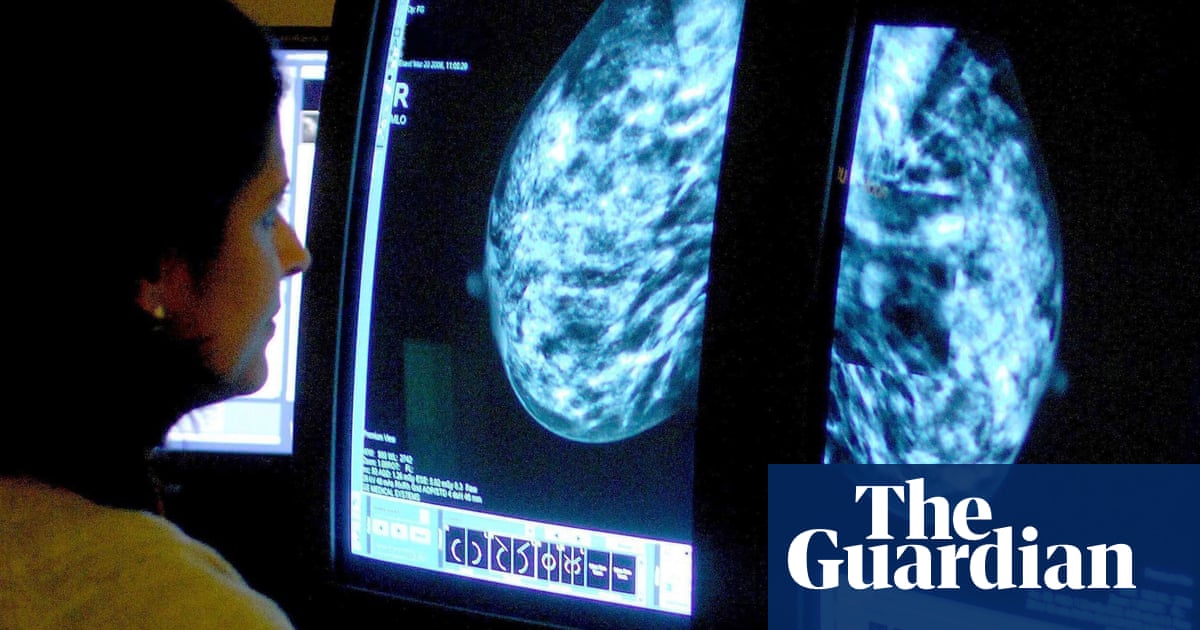
Screening women from the age of 40 for breast cancer has the potential to save lives, according to a study that will reopen the debate over the timing as well as the risks and benefits of routine mammograms.
A group at Queen Mary University of London looked at data on 160,000 women between the ages of 39 and 41 who were randomly assigned either to annual breast screening or to wait until they were eligible for the usual NHS screening, offered every three years from the age of 50.
The women were recruited between 1990 and 1997, when technologies and treatments were not as effective as they are now.
The study is an update, 23 years after the project began, and has similar findings to the last report at 15 years. In the Lancet Oncology journal, the researchers said the benefits kicked in during the first 10 years of screening, when there were 83 deaths among the women who started screening around the age of 40 compared with 219 in the group who started later.
Over the longer term there was little difference in mortality between the two groups. However, the lead researcher, Prof Stephen Duffy, said lives could be saved by lowering the screening age.
“This is a very long-term follow-up of a study which confirms that screening in women under 50 can save lives. The benefit is seen mostly in the first 10 years, but the reduction in mortality persists in the long term at about one life saved per 1,000 women screened,” he said.
“We now screen more thoroughly and with better equipment than in the 1990s, when most of the screening in this trial took place, so the benefits may be greater than we’ve seen in this study.”
Others were more circumspect. “There’s evidence that lives were saved by the sort of screening that was done, in the circumstances that existed when the women involved were in their 40s, which is now quite a long time ago,” said Kevin McConway, emeritus professor of applied statistics at the Open University.
He said there was also statistical uncertainty around the numbers of lives saved. “In those first 10 years, out of every 10,000 women invited for screening, on average about 16 died of breast cancer, while in every 10,000 women in the control group who did not get the screening, on average 21 died.
“These numbers indicate that lives were saved. But they also indicate that death from breast cancer was pretty rare in women of that age. Because breast cancer deaths in younger women are not common, the estimates of breast cancer death rates are not very precise, despite the fact that the trial involved 160,000 women.”
In a commentary in the journal, Anthony B Miller, from the Dalla Lana school of public health at Toronto University in Canada, said the trial had not ended the debate over when to start screening. The trial did not have a control group of individuals who were not screened, he pointed out, and he was surprised that few women had been wrongly diagnosed with breast cancer – a big concern that has led to increased warnings in the leaflets given out by the NHS breast cancer screening programme.
“It could be argued that breast screening with mammography should not be initiated at any age, but rather women should be encouraged to practise breast awareness, with mammography used as a diagnostic test,” he wrote.












